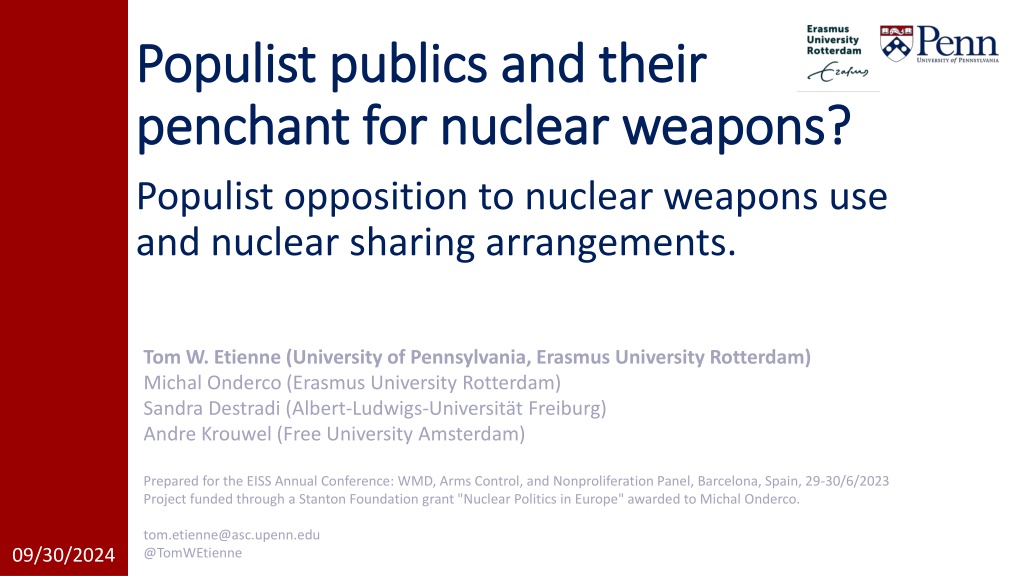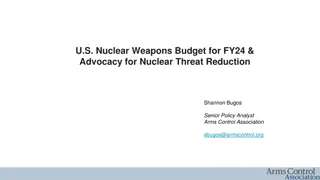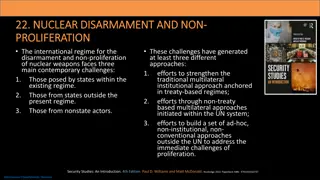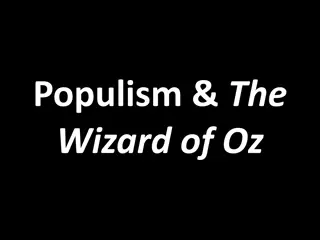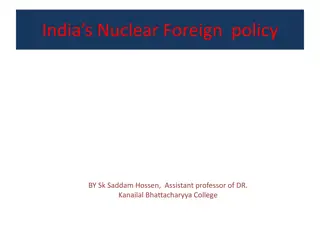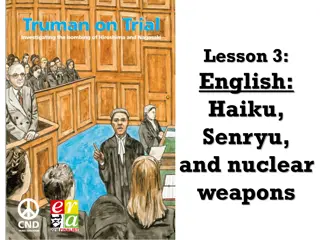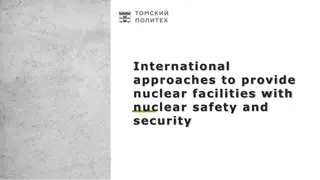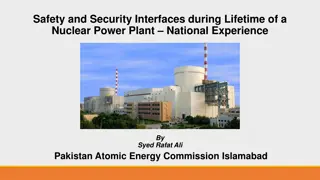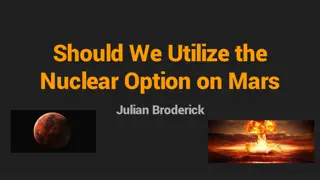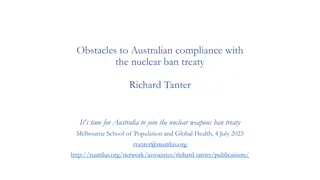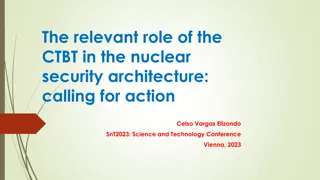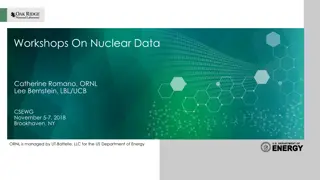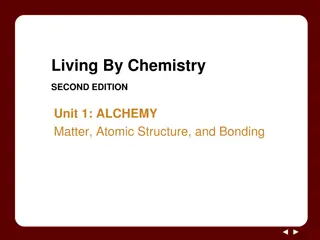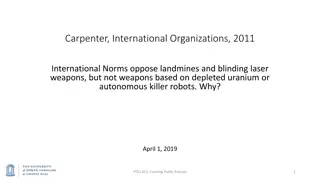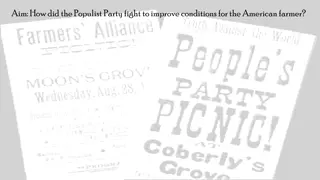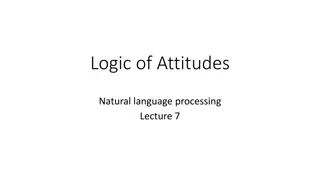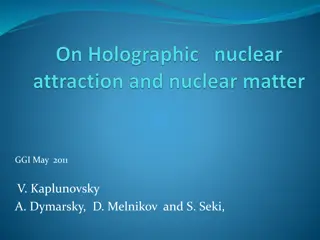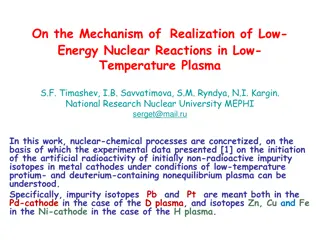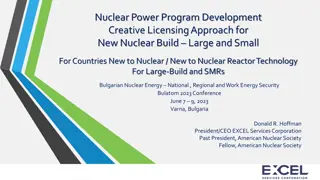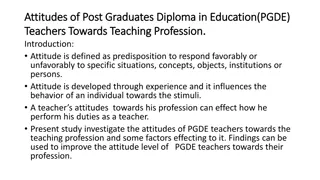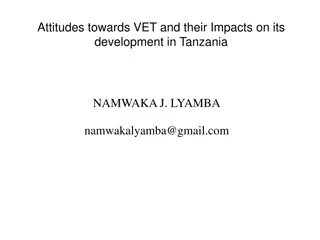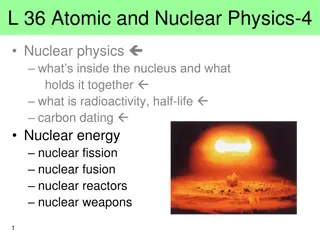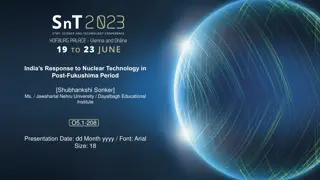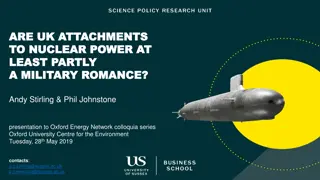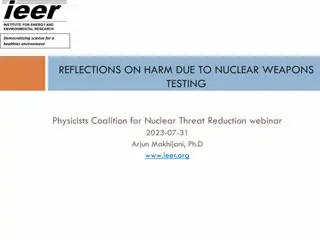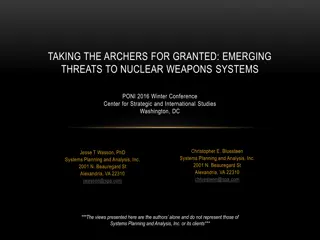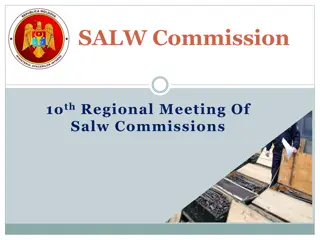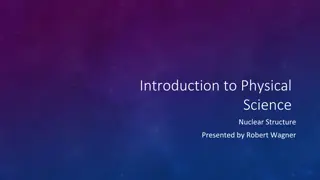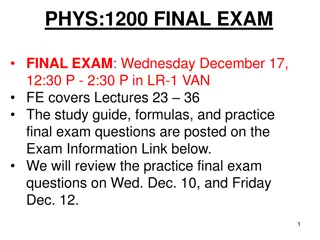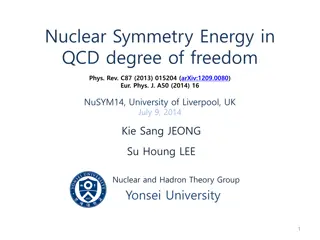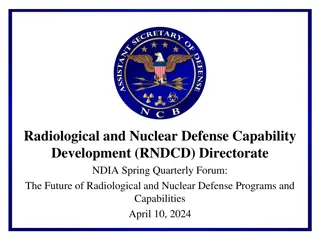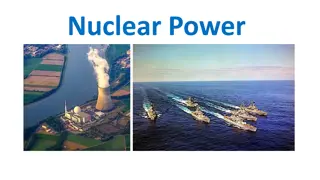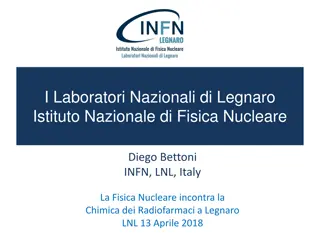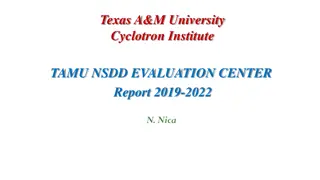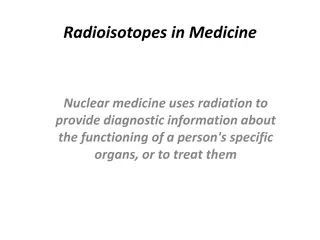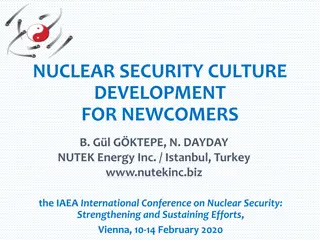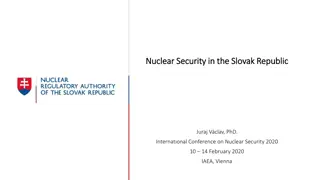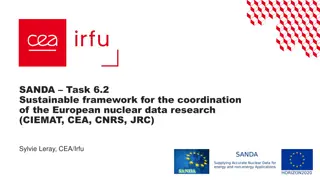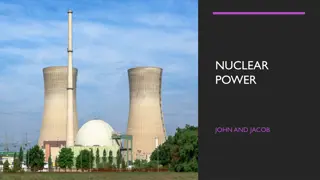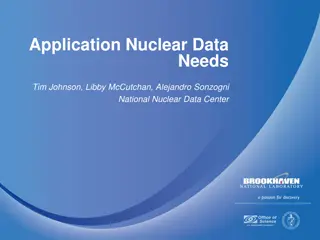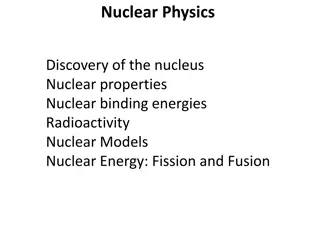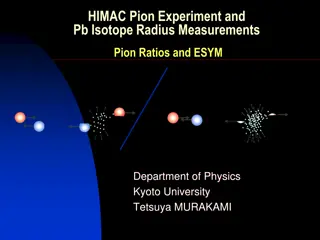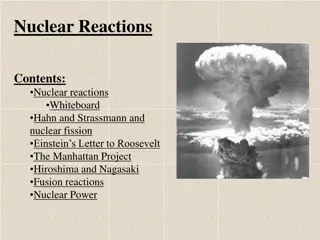Understanding Populist Attitudes Towards Nuclear Weapons in Europe
This research project explores how populist attitudes influence preferences on nuclear weapons use and sharing arrangements among European publics. The study examines the impact of populism on nuclear risk perceptions and sheds light on the nexus between populism and foreign policy, focusing on two European countries, Germany and the Netherlands. Through a theoretical framework and empirical analysis, the study aims to enhance our understanding of the role of populism in shaping views on nuclear weapons.
Download Presentation

Please find below an Image/Link to download the presentation.
The content on the website is provided AS IS for your information and personal use only. It may not be sold, licensed, or shared on other websites without obtaining consent from the author. Download presentation by click this link. If you encounter any issues during the download, it is possible that the publisher has removed the file from their server.
E N D
Presentation Transcript
Populist publics and their Populist publics and their penchant for nuclear weapons? penchant for nuclear weapons? Populist opposition to nuclear weapons use and nuclear sharing arrangements. Tom W. Etienne (University of Pennsylvania, Erasmus University Rotterdam) Michal Onderco (Erasmus University Rotterdam) Sandra Destradi (Albert-Ludwigs-Universit t Freiburg) Andre Krouwel (Free University Amsterdam) Prepared for the EISS Annual Conference: WMD, Arms Control, and Nonproliferation Panel, Barcelona, Spain, 29-30/6/2023 Project funded through a Stanton Foundation grant "Nuclear Politics in Europe" awarded to Michal Onderco. tom.etienne@asc.upenn.edu @TomWEtienne 09/30/2024
Content Content Context Expectations Theory Methods Results Discussion 2
Context Populism and foreign policy Populism and foreign policy Populism only recently a topic of focus in IR We consider it a thin ideology (Mudde, 2004; Mudde & Rovira Kaltwasser, 2013; Stanley, 2008) so it applies to mass attitudes too Link to nuclear risk is limited Focus on populist leaders (Giovaninni, 2018; Gevarter, 2018; Meier & Vieluf, 2021) Little focus on populist publics (Mead, 2011) Fails to engage with mechanisms 3
Context This paper This paper How populist attitudes predict two dimensions of nuclear risk Nuclear weapons use preferences Nuclear sharing attitudes Two European nuclear sharing countries: DE & NL Among the public, using two-wave survey data 4
Expectations Expectations People that have more populist attitudes will: 1. Nuclear use preferences A. Be more likely to support the use of nuclear weapons (H1a) B. Be less likely to support the use of nuclear weapons (H1b) 2. Nuclear sharing attitudes Be less supportive of the nuclear sharing arrangement (H2) 5
Theory: why? Theory: why? Through mechanisms Dimensions of populist attitudes Host ideology Contextual characteristics Meier and Vieluf (2021) posit that populists have a special penchant for nuclear weapons 6
Theory Nuclear use preferences Nuclear use preferences Anti-elitism/establishment dimension of populism Nuclear weapons no longer politicized Nuclear attitudes insulated from public opinion Nuclear policy is technical and seen as an elite project Nuclear policy is opaque and may be prone to conspiratorial thinking (van Prooijen, 2018) Increased acceptance of (domestic) violence (Uscinski et al., 2021) Distinct phenomenon with a host ideology Left-wing populists more pacifist (Coticchia & Vignoli, 2020) Right-wing populists show more enthusiasm for nuclear weapons (Ostermann & Stahl, 2022) Right-wing more likely to support nuclear use (Onderco et al., 2022; Etienne, 2022) Contextual characteristics Use of weapons against Russia Higher affinity for Russia (Etienne et al., 2022) Affinity for strongmen politics, strong leadership 7
Theory Nuclear use preferences Nuclear use preferences Anti-elitism/establishment dimension of populism Nuclear weapons no longer politicized Nuclear attitudes insulated from public opinion Nuclear policy is technical and seen as an elite project Nuclear policy is opaque and may be prone to conspiratorial thinking (van Prooijen, 2018) Increased acceptance of (domestic) violence (Uscinski et al., 2021) More likely Less likely Distinct phenomenon with a host ideology Left-wing populists more pacifist (Coticchia & Vignoli, 2020) Right-wing populists show more enthusiasm for nuclear weapons (Ostermann & Stahl, 2022) Right-wing more likely to support nuclear use (Onderco et al., 2022; Etienne, 2022) Contextual characteristics Use of weapons against Russia Higher affinity for Russia (Etienne et al., 2022) Affinity for strongmen politics, strong leadership 8
Theory Nuclear sharing attitudes Nuclear sharing attitudes Popular sovereignty dimension US weapons under US protection and command (transferred to NPG) Anti-globalization sentiments Bring control back to the people Weapons are imposed on the people Anti-elitism dimension Hostility to international elites To the US, to Brussels 9
Methods Methods Two-wave panel data June 2022 May 2023 Germany & Netherlands (total n = 6438) Weighted data 10
Methods Methods Dependent variables 1. Nuclear use preferences OLS regression Index of 6pt Likert scales on four use scenarios 2. Nuclear sharing attitudes multinomial regression In favour of nuclear withdrawal, but not with US reinforcements Independent variables Index of populist attitudes (8 items, alpha = 0.91) Anti-elitism and popular sovereignty captured Demographic controls Political controls Left-right self-placement (+ vote recall) 11
Results Populist attitudes Populist attitudes 12
Results Nuclear use preferences & populism Nuclear use preferences & populism 13
Resuls Nuclear sharing descriptives Nuclear sharing descriptives 14
Nuclear sharing & populism Nuclear sharing & populism 15
Discussion Some considerations Some considerations Study of the public instead of elites Populist leaders are not in power in DE/NL Nuclear sharing states vs NWS/NNWS 16
Discussion Implications Implications Populists proclivity for nuclear use may be context dependent While Russia remains sole realistic target, support may depend on Russian regime, domestic regime, and US regime. 17
Discussion Future improvements Future improvements Control for additional explanations with alternative data Isolationism Better models for longitudinal data, closer to causal identification Fixed effects Pay closer attention to the interaction with LR-ideology Parse out contextual factors effects Introduce an experiment where we vary Russia as the target in the use scenarios Perhaps experiment to causally identify effect, But also to see if Russia is the determining factor 18
